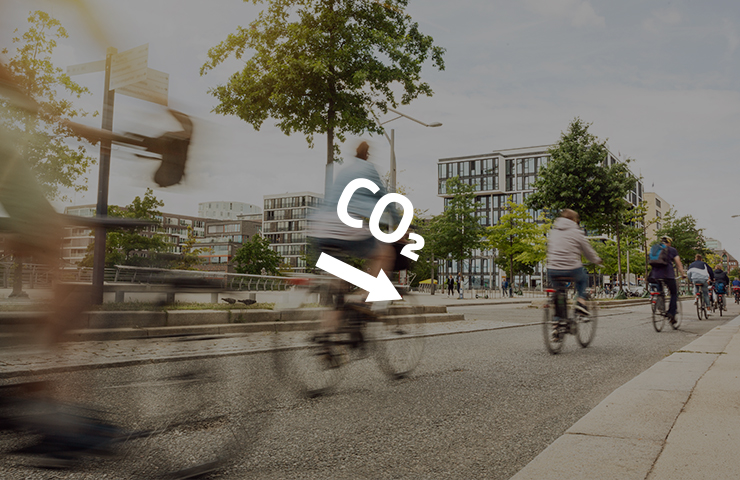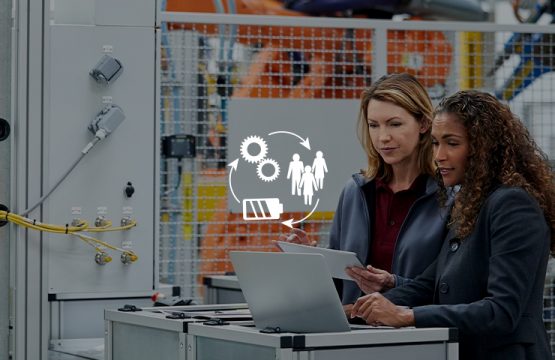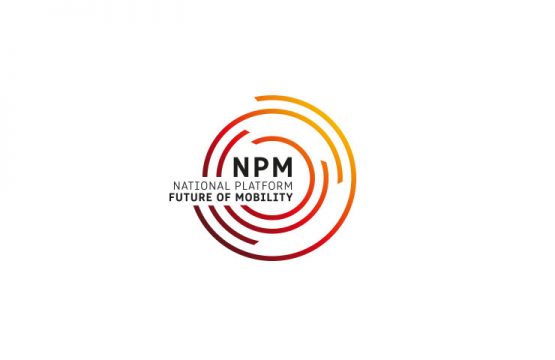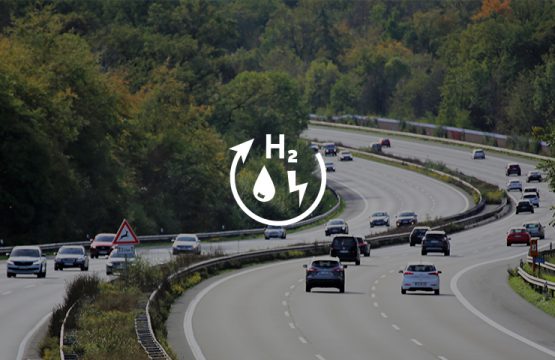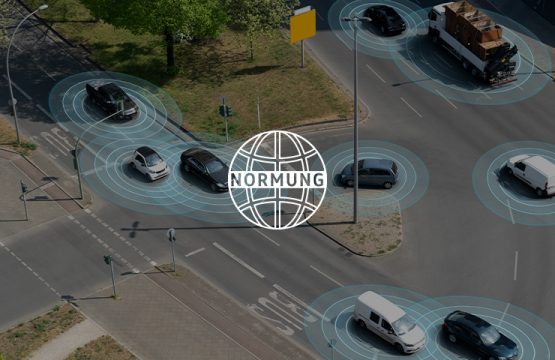How can we make mobility climate-friendly in the future and at the same time maintain the affordability of mobility as well as the competitiveness of companies and jobs in Germany? And what prerequisites must be met so that we can integrate more electric vehicles into our transport and energy system? In its third meeting, the Steering Committee of the National Platform Future of Mobility today adopted the first recommendations for sustainable mobility in the future.
Climate protection is one of the defining challenges of our time: Greenhouse gas emissions in Germany are to be reduced by at least 55% by 2030 compared with 1990 levels. For the transport sector, this means a reduction of 40-42% by 2030. In view of the fact that CO2 emissions have even risen in recent years, a turnaround is now needed. Climate-friendly mobility is an opportunity for sustainable prosperity, because investments in climate protection are investments in growth, employment and future markets.
Since the establishment of the National Platform on the Future of Mobility in September 2018, the members of the Working Group 1 “Transport and climate change” have intensively and comprehensively discussed together how climate protection targets in the transport sector can be achieved. At today’s meeting, the working group presented its interim report to the Platform’s Steering Committee. It identified six key fields of action for reducing greenhouse gases and, by systematically estimating the potential for reducing CO2 emissions and calculating target scenarios, demonstrated that the sector target of 95 to 98 million tonnes of CO2 emissions in the transport sector by 2030 can in principle be achieved. To this end, measures from all fields of action must be combined and coordinated – all technologies and modes of transport and corresponding investments, e.g. in production capacities and infrastructures, are needed.
It is therefore important to promote these investments so that climate protection can be put into practice. The Working Group has jointly developed a bundle of concrete instruments with the focus on “Innovations, Infrastructure and Digitisation”. This bundle of instruments, which is primarily geared to infrastructure improvement, direct promotion and the expansion of services, together with the EU standards that have already been adopted, can open up a significant CO2 reduction potential of 29 to 39 million tonnes of CO2 equivalents.
A balanced overall concept, which also takes into account corresponding interactions, can include further instruments that make the necessary savings possible in order to achieve the climate target. “With its interim report, the Working Group 1 has shown that it is possible to achieve the climate protection targets and has recommended important first steps that can already contribute to the target. We now have to implement these steps swiftly and, following on from this, work together to find further options in order to achieve the sector target,” emphasised Henning Kagermann, Chairman of the NPM Steering Committee. “We have a great responsibility, because the transformation of the mobility sector is not only a question of climate protection, but also an economic and social issue. It involves costs for the economy and society,” Kagermann continued. “Not all effects and developments can be fully and transparently assessed today. That is why it is crucial that we jointly drive forward the sustainable design of mobility with an iterative approach over a long period of time, accompany the implementation of recommended measures and, if necessary, be able to make adjustments”.
Finally, the Federal Government recommends that the NPM also examines the approach of socially acceptable CO2 pricing across all sectors that are not subject to the European emissions trading system in order to achieve the climate protection targets. This instrument should have a steering effect in all fields of action: i.e. to accelerate the change of drive, to raise further efficiency gains, to facilitate the market entry of regenerative fuels, to promote the switch to more energy-efficient modes of transport and to support the contribution of digitisation to climate protection. The Working Group “Transport and climate change” is now to follow on from its interim report. At the explicit request and decision of the Steering Committee, it continues to be an integral part of the platform.
Two papers from the Working Group 5 “Linking transport and energy networks, sector coupling”, which were also presented to the steering committee today, show how climate protection measures in transport can actually be implemented. By switching to drive technologies that make particularly efficient use of renewable energies, the greenhouse gas effect of cars, trucks and buses will be reduced. The Working Group 5 has now examined the technical, organisational and regulatory needs for action that a 10% share of e-vehicles in new registrations entails and which measures are now necessary to ensure that the charging infrastructure can grow appropriate with the number of electric vehicles.
According to the experts, the expansion of the charging infrastructure (LIS) is currently ahead of the increase in the number of electric vehicles. However, to ensure that an LIS tailored to requirements is available even in the case of increasing new registrations of electric vehicles, measures must be taken this year to accelerate the expansion. Among other things, the development of the private charging infrastructure at home and at work should be facilitated and financially promoted by prompt adjustments to the residential and property rights, since 85% of the charging processes take place here. Approval procedures at local authorities should be accelerated and registration processes for charging infrastructure at network operators harmonised. Due to the limited availability of space, alternatives to the current charging stations would also be necessary, the attractiveness of which should not be diminished by an excessively narrow regulatory framework for hardware and energy products. For the further expansion of the public charging infrastructure, fine-tuning of existing funding is also recommended, such as the inclusion of semi-public LIS in existing funding programmes.
With regard to the additional electricity demand, it is reported that the generation of electricity from renewable energies will not be a bottleneck even with more dynamic growth rates. With regard to the grid integration of electromobility, it is clear that electricity grids are basically well positioned for electromobility, but that local bottlenecks are possible in conurbations with concentrated growth. In order to make optimum use of existing networks, the current network utilisation should therefore be monitored in perspective and possibilities for intelligent load management used. In addition, equipping the private charging infrastructure with control and communication equipment is imperative from a perspective perspective. It is urgently recommended to ensure the controllability as soon as possible by binding specifications.
The other Working Groups “Alternative drive systems and fuels for sustainable mobility”, “Digitisation for the transport sector”, “Safeguarding mobility and production sites, battery cell production, raw materials and recycling, education and training” and “Standardisation, standardisation, certification and approval” also presented their working status to the Steering Committee. An intensive cooperation of all Working Groups makes it possible to comprehensively address the transformation of the mobility sector in order to make mobility ecologically, economically and socially sustainable.
About NPM – National Platform Future of Mobility
The National Platform Future of Mobility brings together experts from politics, the private sector, associations, research institutions and NGOs to develop concepts for sustainable, environmentally and climate-friendly, affordable and competitive mobility in Germany. Under the chairmanship of Prof. Dr. Henning Kagermann, six Working Groups are working on technology-neutral, cross-modal recommendations for action for politics, business and society.
